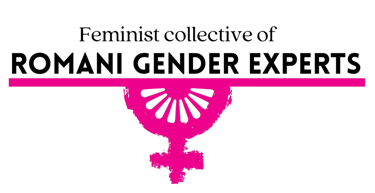Commission on the Status of Women NGO Side Virtual Event: Feminization of Poverty
Exploring the Feminization of Poverty: Insights from a recent event shedding light on the challenges faced by marginalized women.
REFLECTIONS
Alba Hernández & Claudia González
3/27/20242 min read
On March 15, the Global Forum for Communities Discriminated by Work and Descent (GFCDWD), along with partners, organized a virtual side event to address the intersectionality of discrimination, marginalization, and poverty faced by women in Communities Discriminated by Work and Descent (CDWD). Women who are part of the CDWD are considered one of the most vulnerable groups in terms of social, economic, and political development. For this reason, they experience intersectional discrimination and oppression due to various factors, including age, ability, work, caste, class, and gender. Moving towards greater inclusion of these women, recognizing their existence, addressing specific strategies to attend to their needs, and guaranteeing access to their rights must become a global imperative.
During the event, different professionals in the field such as Penda Mbow, Queen Bisseng, Verceliene Dias, Claudia González, and Logeswary Ponniah, moderated by Marija Sulejmanova, elucidated key aspects of how poverty specifically and exacerbated affects women from historically discriminated communities in terms of work and descent. Additionally,
Isabela Mihalache provided the audience with a brief preview of the main results of the survey conducted on the situation of Roma in Europe.
Penda Mbow marked the session with an important keynote speech where she emphasized the cultural aspect as a link between poverty and the caste system, resulting in a historically unequal distribution of resources. Mbow also highlighted the lack of education, hindering women's participation in the market and especially in industrial development, condemning them to a situation of dependency, as well as the early sexualization of women.
Queen Bisseng complemented Mbow's arguments by focusing on the difficulty of eliminating the stereotypes that mark communities. She also spoke about early marriages that leave women without access to opportunities. On the other hand, she also pointed out the isolation of some of the communities, which often leads women to become victims of sexual exploitation, objectifying and dehumanizing them.
Verceliene Dias emphasized how Quilombola women in rural areas find themselves without access to basic services, as well as the danger they experience when trying to claim their rights and becoming victims of murder. Dias explained that there is not enough data on the community, making their situation even more invisible. For this reason, she demands the right to education, the protection of women from sexual violence, and access to basic services such as healthcare so that some common diseases do not lead to death due to lack of treatment.
Claudia González highlighted the importance of the intersectional discrimination suffered by Roma women influenced by different factors such as gender, ethnicity, racialization, socioeconomic status, and educational level. González emphasized the increase in the school dropout rate and the existing gender gap resulting from the maintenance of gender roles. She also stressed the generalization of the situation of poverty risk in the community, causing Roma women to live, on average, 11 years less than women in general, and denounced the normalization and justification of discrimination against the Roma.
The event benefited from the collaboration of reference partner organizations including the European Network of Roma Grassroots Organizations (ERGO), the Romani Feminist Collective of Gender Experts, and Romalítco - Institute for Research and Policy Analysis.
